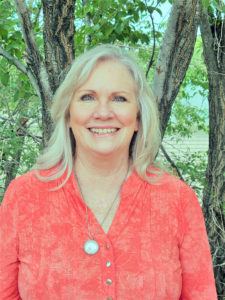Considering one in seven people who have HIV are not aware they have it, it is important that our communities realize HIV is still around.
Unless something affects us directly, we tend to not pay attention. Admittedly, there is too much going on in every individual life that we can barely pay attention to what is right in front of us, let alone the significance of any random date on the calendar. After all, there really is a specific calendar dedicated to telling us what each day of the year signifies – whether it is National Cheesecake Day or Global Handwashing Day – there is something that can always be celebrated.
Dec. 1 is not necessarily a day that was designated as a day to celebrate. In 1988, when this date was specified as World AIDS Day, there was no celebrating going on because of the designation. Little was known about HIV and AIDS, and those who were affected by AIDS had little hope of surviving the deadly virus. Thanks to those who came along to bring people together from around the world to raise awareness, HIV and AIDS began to get the attention it deserved.
Considering one in seven people who have HIV are not aware they have it, it is important that our communities realize HIV is still around; it is still an infectious disease, and we all need to still give it attention to keep it from becoming a large pandemic again. Thankfully, those who are living with it can lower their viral load to a point where they are not infectious via normal transmission avenues—anal, vaginal and oral sex, breast milk and the sharing of other bodily fluids. However, because so many people don’t know they are walking around with HIV in their bodies, it continues to spread, and in this case, ignorance can kill.
Not only are many people unaware of their status and of the significance of Dec. 1, but most don’t know how easy it is to prevent and treat HIV. First, know your status. All people who have been in any form of sexual relationships with other people should always be tested so that they are aware of their status. Knowing your own status empowers you to either continue to make intelligent and life-saving choices for yourself and your sexual partners if you test negative or begin life-saving medical treatments if you test positive. Not knowing your HIV status and continuing a lifestyle as if you don’t is like running onto a freeway teeming with cars. One time or another, you’re going to get hit.
In this year of 2021, those who care for loved ones infected with HIV will agree that it is time to end the stigma that HIV used to carry back in the 1980s once and for all. Ignorance breeds stigma, and stigma breeds fear. In this case, the fear is dangerous because it causes people to not get tested, regardless of how many times in their lives they may be have been exposed. People with HIV who don’t know or ignore their status are walking time bombs. If they don’t know their status, they will continue to spread it unknowingly, and the virus continues to live on into other generations. Those who do know their status but are not in care will eventually succumb to other diseases (as they possibly continue to spread the virus) when their viral load reaches such a high number that their immune systems can’t fight anything off. Often, when a person’s viral load is so high that they are diagnosed with AIDS, too much damage has been done and the body can’t recover.
Considering how easy it is to get a confidential, free test to make sure people do not have HIV, everyone should be getting tested every year if they are taking part in anything that could possibly expose them to the virus. Even those who are in or considering committed monogamous relationships should know their status, just for the peace of mind that they will not be spreading anything to their partners.
When Dec. 1 rolls around this year and every year, ask yourself, “Should I get tested?” If you have even one reason that your answer could be yes, then do it. Your life, and the lives of your loved ones, could depend on it. QCBN
By Vonda Chisholm
If you have questions about HIV testing, would like to know how you can donate to or volunteer with Northland Cares or just have general questions about all the services we provide, please call us at 928-776-4612.
Vonda Chisholm is the executive director of Northland Cares, Northern Arizona’s premier specialty HIV treatment and prevention clinic. With offices in Prescott and Cottonwood and remote services, the staff of Northland Cares provides HIV/STI/Hep C education, testing, treatment and prevention as well as wrap-around services such as housing assistance, medical case management, behavioral health treatment and stellar specialty HIV medical services. For questions of any kind, please call 928-776-4612 for those in and near Prescott or 928-649-0833 for those in and near Cottonwood.







Leave a Reply